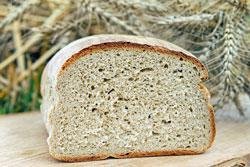Triglycerides are a type of fat stored in your body for energy. While they play a vital role in keeping you energized throughout the day, chronically elevated triglyceride levels can significantly increase your risk of developing heart disease.
Understanding how to lower triglycerides becomes crucial for maintaining good health and preventing future complications.
The good news is that you have the power to make positive changes and reduce triglycerides naturally! This comprehensive guide explores the causes of high triglycerides, their impact on your health, and provides actionable steps to effectively manage triglyceride levels.
Understanding High Triglycerides and Their Health Risks
Imagine carrying around a heavy backpack all day – it would undoubtedly slow you down and strain your body. Similarly, excessive triglyceride levels act like unwanted baggage in your circulatory system. When triglyceride levels become too high, they start getting deposited in various parts of the body, including your hips and, more importantly, the walls of your arteries. This artery buildup, known as atherosclerosis, is a major risk factor for heart disease, stroke, and peripheral artery disease (PAD) (1).
While high triglycerides often have no noticeable symptoms, the potential consequences for your health are severe. In rare cases, very high triglyceride levels (above 500 mg/dL) can lead to a condition called pancreatitis, causing severe abdominal pain, nausea, and vomiting. Early detection and treatment of high triglycerides are crucial for preventing these complications.
What Causes High Triglycerides?
Several factors can contribute to the development of high blood triglycerides. Here's a breakdown of the key culprits:
- Diet:Refined carbohydrates and sugary foods are the biggest offenders. These simple carbohydrates are quickly broken down by the body and converted into triglycerides. Sugary drinks, processed snacks, white bread, and pastriesare all major contributors to high triglycerides. A sample meal plan for lowering triglycerides and cholesterol focusing on whole grains, fruits, vegetables, and lean protein can be a valuable tool for dietary changes.
- Lifestyle:A sedentary lifestyle is another significant risk factor. Lack of regular physical activity prevents your body from effectively utilizing stored triglycerides for energy, leading to their buildup in the bloodstream. Exercises that help lower triglycerideslike brisk walking, swimming, cycling, or dancing can significantly improve your triglyceride profile.
- Certain medical conditions:Underlying medical conditions like hypothyroidism, kidney disease, and uncontrolled diabetes can all contribute to elevated triglyceride levels. If you have any of these conditions, working with your doctor to manage them effectively is crucial for controlling your triglycerides.
- Medications:Some medications, such as certain blood pressure medications and birth control pills, can raise triglyceride levels as a side effect. If you're concerned about the potential impact of your medications on your triglycerides, discuss it with your doctor.
Natural Ways to Lower Triglycerides and Improve Heart Health
The good news is that you can lower triglycerides naturally through simple lifestyle modifications! Here are some key strategies to incorporate into your daily routine:

Ditch the Refined Carbs and Embrace a Fiber-Rich Diet
Remember the 14-16 hour fasting window before a triglyceride levels chart test? This highlights the significant impact of food choices on triglyceride levels. Swap refined carbohydrates and sugary treats for whole grains, fruits, vegetables, and legumes – all rich in dietary fiber.
Fiber helps slow down the absorption of sugar into the bloodstream, preventing sudden spikes in triglycerides. Leafy green vegetables are especially helpful, as they contain lipoic acid, a powerful compound shown to reduce triglyceride levels (2). Explore recipes to lower triglycerides online or in cookbooks for delicious and heart-healthy meal ideas.
Get Moving and Make Exercise a Habit
Exercise is a powerful tool for burning calories, including those stored triglycerides. Aim for at least 30 minutes of moderate-intensity exercise most days of the week. You can break it down into smaller chunks, like three 10-minute sessions throughout the day.
Walking, swimming, cycling, dancing, or even gardening are all excellent options. If you're new to exercise, start gradually and gradually increase the duration and intensity as your fitness level improves. You can even develop a sample workout routine to lower triglycerides that fits your preferences and fitness level.

Lower Your Cholesterol for Overall Heart Health
A diet that promotes healthy cholesterol levels is also beneficial for managing triglycerides. Focus on incorporating fiber-rich options such as whole grains, fruits, vegetables, and legumes into your meals. Additionally, include foods rich in omega-3 fatty acids, such as fatty fish (salmon, tuna, mackerel), flaxseeds, chia seeds, and walnuts
Manage Stress Effectively
Chronic stress can wreak havoc on your body in numerous ways, and triglyceride levels are no exception. When you're stressed, your body releases hormones like cortisol, which can stimulate the production of triglycerides by the liver.
Practice relaxation techniques such as yoga, meditation, deep breathing exercises, or spending time in nature to manage stress effectively. Finding healthy ways to cope with stress can significantly improve your overall well-being and contribute to lower triglyceride levels.
Limit Alcohol Consumption
Excessive alcohol intake can significantly raise triglyceride levels. Alcohol is processed by the liver, and when there's an overload, the liver prioritizes metabolizing alcohol over processing triglycerides. This can lead to a buildup of triglycerides in the bloodstream.
If you choose to drink alcohol, do so in moderation. According to the Dietary Guidelines for Americans, moderate alcohol consumption is defined as one drink per day for women and two drinks per day for men.
Consider Quitting Smoking
Smoking is a major risk factor for heart disease and numerous other health problems. While smoking doesn't directly raise triglycerides, it can worsen other risk factors like insulin resistance and inflammation, which can indirectly contribute to high triglycerides.
Quitting smoking is one of the best things you can do for your overall health, including improving your heart health and potentially lowering your triglyceride levels.
Additional Tips for Managing Triglycerides and Maintaining a Healthy Lifestyle:
- Consult with your doctor:A doctor can help diagnose high triglyceridesand identify any underlying medical conditions that might be contributing to the problem. They can also create a personalized plan for managing your triglycerides, which may include lifestyle modifications and, in some cases, medication.
- Monitor your progress:Regularly monitor your triglyceride levels through blood tests to track your progress. The frequency of testing will depend on the severity of your condition and your response to treatment.
- Get enough sleep:Aim for 7-8 hours of quality sleep each night. Chronic sleep deprivation can disrupt hormonal balance and contribute to weight gain, both of which can worsen triglyceride levels.
- Increase water intake:Staying adequately hydrated is crucial for overall health, and it can also play a role in managing triglycerides. Aim to drink plenty of water throughout the day.
Bottom Line
Taking charge of your health by lowering triglycerides is an investment in your future. If these lifestyle changes don't bring your triglycerides down to a healthy level, consult your doctor. They can help identify any underlying medical conditions and create a personalized plan for optimal heart health. By making these changes and adopting a heart-healthy lifestyle, you can effectively manage your triglycerides and live a long, healthy life!

